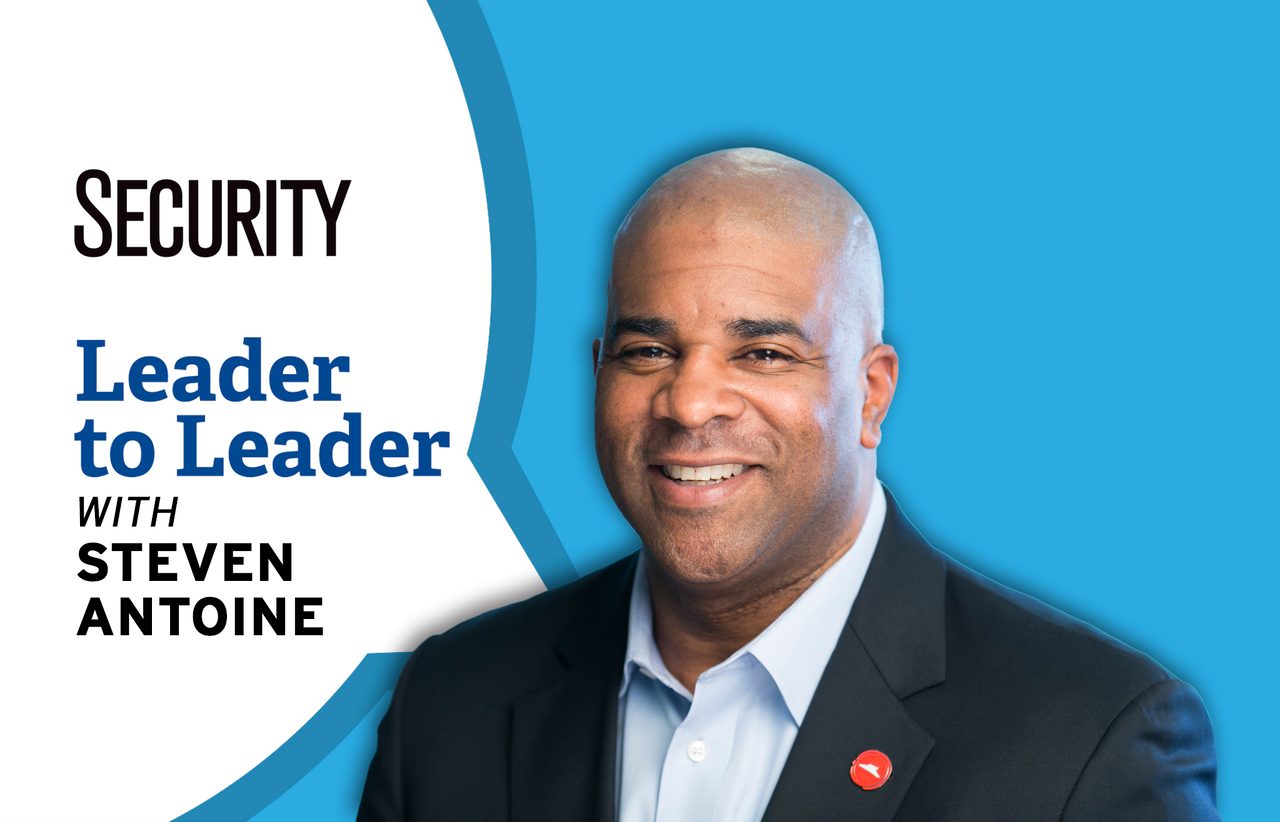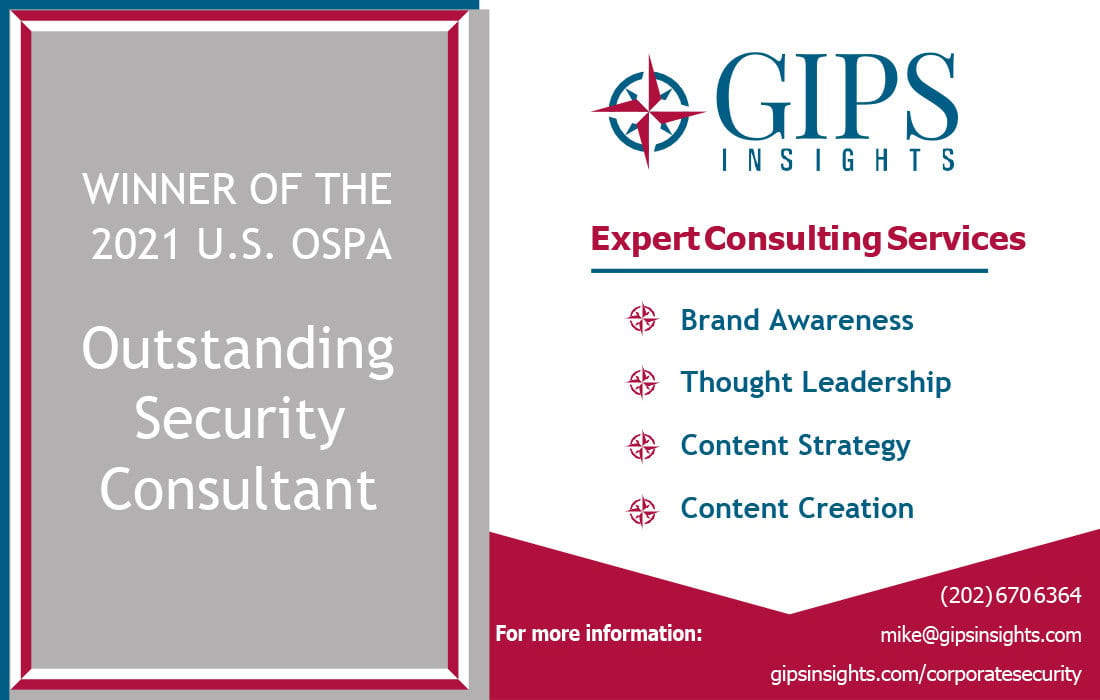april 2022

By Burke Brownfeld
Contributing Writer
Adding Value to People and Places

Image courtesy of Antoine
“Cheer Dad” or “Girl Dad” probably would not have been your first way to describe Steve Antoine after a glance at his LinkedIn profile. Some may know Antoine from his days as a street cop, while others may think of him as the international special agent for the Department of State.
More recently, Antoine has held senior corporate security leadership roles at some of the world’s most recognizable firms, including Yum! Brands, and he currently holds the Vice President of Global Security position at PepsiCo. However, one thing that makes Antoine such an interesting leader is his healthy and intentional balance between being the innovative corporate security leader at work and being the proud dad at home.
Burke Brownfeld: How have you found yourself contributing and leading as a corporate security professional in the context of COVID-19 response? What have you learned from it?
Steve Antoine: We’ve had the unique experience of dealing with a multitude of crises during this COVID-19 response. The greatest contribution I realized I was providing during these unpredictable times was having perspective and being calm, seeing clearly through the fog, while being fluid and flexible enough to pivot when new information popped up. This allowed me to help guide business leaders through the process of clearly seeing the cause and effect of certain strategic choices that needed to be made, and this process continues to evolve even today. Being proactive, predictive and preventative in the context of decision-making has been a way that we’ve found to contribute during these challenging times.
Brownfeld: What is your strategy in terms of adding value to a company through the corporate security and resilience function?
Antoine: In corporate security, one of the things we have struggled to do is to seat ourselves so we know where the business is going. Knowing where the business is headed allows us to prioritize what we focus on so that we can provide direct support to the core priorities of the business itself. Otherwise, we are purely reactive, constantly changing course and a couple of steps behind. The more you understand the fundamentals of the business you support, the easier it will be for your function to actually be supportive of what the business needs.
Protecting the business while also promoting its growth also requires understanding how the business views the concept of risk. The risk tolerance of a corporation may often be much larger than what a classically trained security professional is used to. For example, a business may want to expand into a new market with a high risk of geopolitical challenges or civil unrest. That can make security professionals uncomfortable. That is part of the learning curve of understanding how the business views risk and being flexible enough to find ways to protect and mitigate inside of that context. When we don’t take the time to really listen and learn how the business makes decisions, we can find ourselves becoming an accidental impediment.
advertisement
advertisement
"The more you understand the fundamentals of the business you support, the easier it will be for your function to actually be supportive of what the business needs." — Steve Antoine, VP of Global Security, PepsiCo
Brownfeld: What advice would you give someone aspiring to one day be a security executive or chief security officer (CSO)?
Antoine: The first thing I’d say is to start taking business classes or exposing yourself to businesses that you admire. It goes back to understanding the business. My background was in policing and as a federal agent. That traditional training that many security practitioners have often does not include flexible risk tolerance or the utilization of metrics to make a business case, depending on their background.
The other thing I would say is that the most important attribute of a security executive isn’t security acumen. It’s the ability to communicate, build rapport and understand people. One piece of advice I’d give to someone who really wants to be a CSO is that you have to part from the idea that the right thing to do from your perspective is always going to be the right thing for the business.
Brownfeld: What’s something about you that is not on your resume but that you feel is a key part of who you are?
Antoine: What’s funny is “Cheer Dad” is on my resume! And every interview I’ve had, it comes up. I’m a family guy, and supporting my daughters with their cheer activities is all part of showing that love and support. But what’s not on my resume is being a previous coach. I was a football coach, a JV basketball coach and a women’s softball coach.
Those experiences connect with part of who I am, which is the intrinsic quality of adding value to others. I have an innate desire to want to bring joy and leave places and people better than I found them. My goal is for every interaction I have to be a pleasurable one. The cheer dad and coaching part is about creating foundational building blocks for young adults to push past their fears and doubts. These experiences translate to the professional sphere — they’ve also made me a better employee and a better mentor.
Brownfeld: What do you see as the next iteration for the corporate security function? Where are we headed?
Antoine: Businesses want to see around corners. The ability of mature security programs to help businesses by providing faster and actionable information to make informed decisions holistically is what executives want. Getting there is a tough road because sometimes that’s expensive. Great people are expensive. For the function itself, we continue to evolve and have more people with varied experiences. This allows us to get better at articulating what’s important to the business in a way that the business can digest. You wouldn’t think that is intuitively difficult, and it’s not when you’re responsive and reactive. It gets difficult when security leaders want to do things that other corporate executives can’t fathom. So, we have to evolve in our ability to communicate in a way that resonates with our stakeholders. If we’re speaking the same language as our cross-functional partners, we are adding real value and contributing to the maturity and growth of the business.
About the Columnist
Burke Brownfeld has been in the security industry since 2004. He has held a number of roles throughout his career. Currently, Brownfeld serves on the Physical Security & Business Resilience Team at Zoom, where he oversees Zoom’s global data center security program. Previously, Brownfeld served in leadership roles in the public and private sector, ranging from being a Director in Visa Inc.’s Corporate Security program, leading corporate security for the Washington D.C. Metro system, and overseeing regional security for the U.S. Peace Corps in Latin America. Columnist image courtesy of Brownfeld
april 2022


